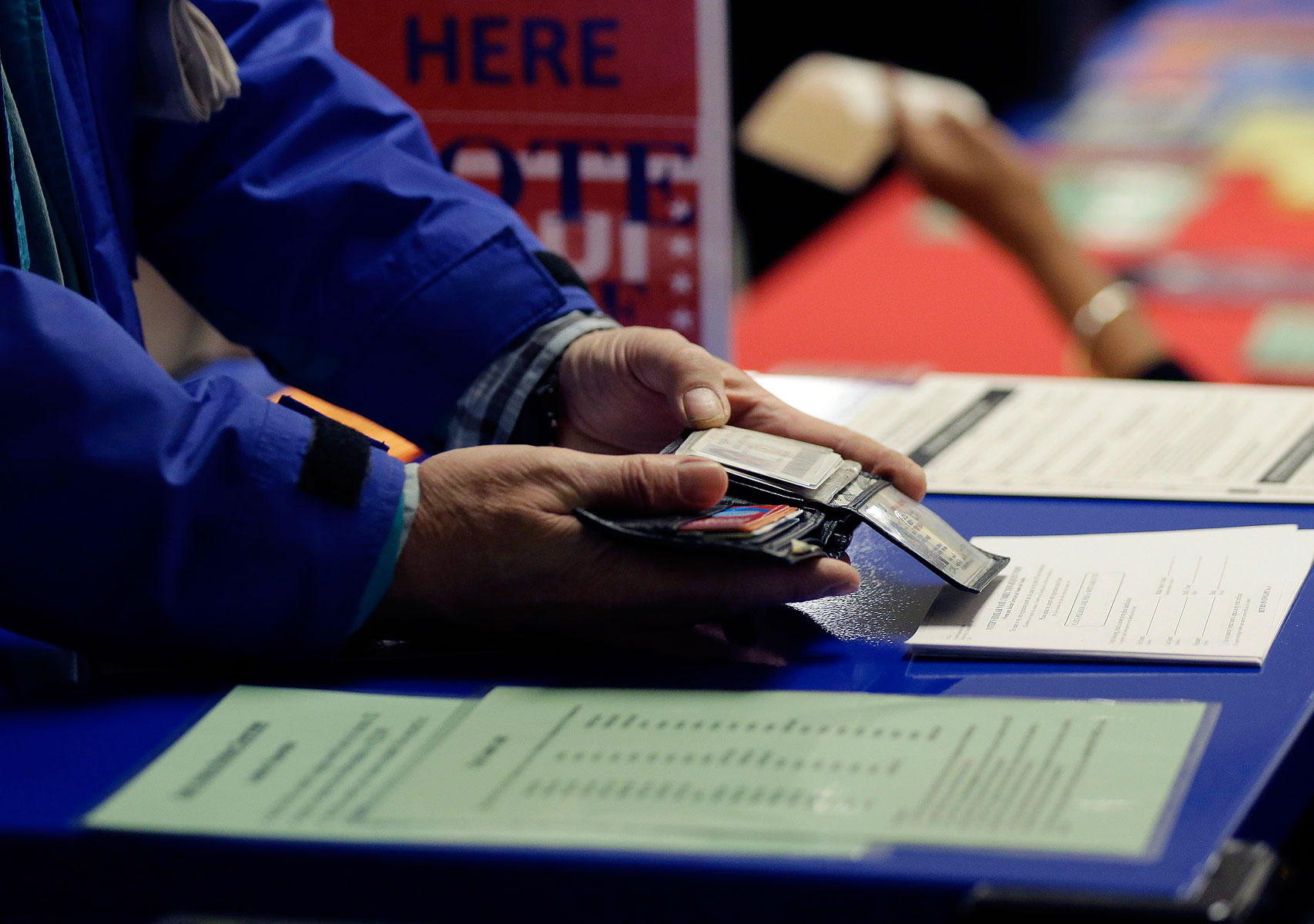
The Supreme Court decided Saturday that Texas can enforce its controversial voter identification law in November’s midterm elections, despite recently blocking several similar laws in other states.
The law, which requires Texas voters to show photo identification like a driver’s or gun license, a military ID or a passport, is championed by some who argue that it reduces voter fraud. However, critics say it’s a means of disenfranchising voters, particularly minority groups and the poor, who can be less likely to have the government-issued identification required by the law.
While the Court left its decision over the law unexplained, Justice Ruth Bader Ginsburg issued a dissent criticizing the voter ID rules, calling them “a purposefully discriminatory law” that undermines “public confidence in elections.” Justices Sonia Sotomayor and Elena Kagan joined Ginsburg’s dissent, the New York Times reports.
A report released this month by the non-partisan Government Accountability Office showed that voter ID laws similar to those in Texas contributed to lower voter turnouts in two states in 2012—between about 2.2 and 3.2 percentage points in Tennessee and 2 percentage points in Kansas. Those declines were greater among younger and black voters.
Critics of the Texas law say it would disenfranchise 600,000 registered voters in Texas, disproportionately affecting blacks and Hispanic or Latino voters. Texas officials have countered by saying that estimates of the number of people who could be deterred from voting by the law are unfounded.
After many months of legal wrangling, the Texas law, first passed in 2011, was blocked earlier this month by Texas Judge Nelva Gonzales Ramos of the Federal District Court in Corpus Christi. The Supreme Court’s decision overturns Gonzales’ injunction against the law, allowing it to be applied.
In the absence of an official explanation of the Court’s decision, some observers are speculating the justices allowed the law to stand to prevent confusion so close to the November’s elections. Those observers feel that reluctance to disturb the status quo as voting looms near has been the single common thread tying together several of the Court’s seemingly discordant decisions regarding voter ID laws in recent weeks.
More Must-Reads from TIME
- Cybersecurity Experts Are Sounding the Alarm on DOGE
- Meet the 2025 Women of the Year
- The Harsh Truth About Disability Inclusion
- Why Do More Young Adults Have Cancer?
- Colman Domingo Leads With Radical Love
- How to Get Better at Doing Things Alone
- Michelle Zauner Stares Down the Darkness
Contact us at letters@time.com